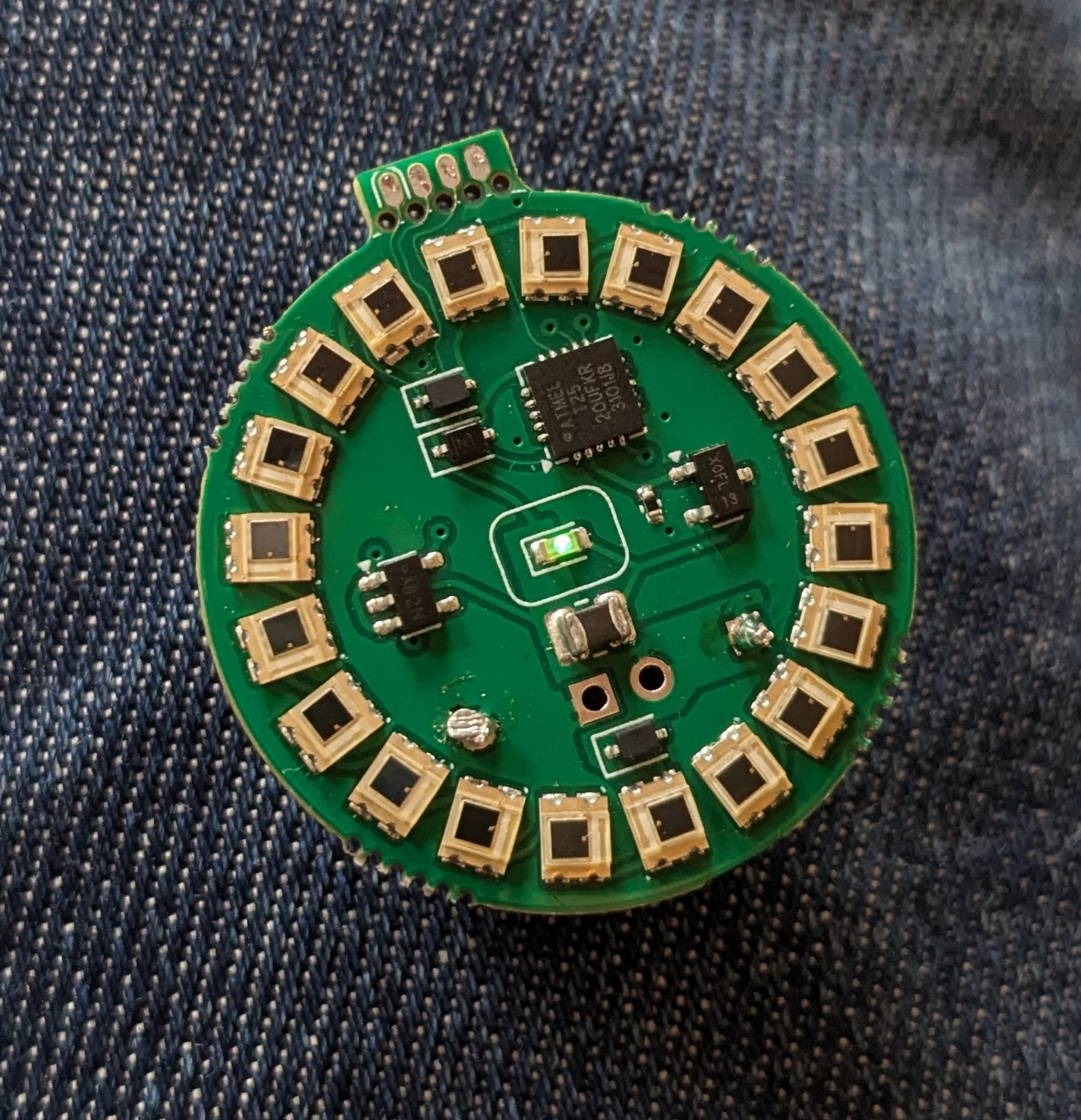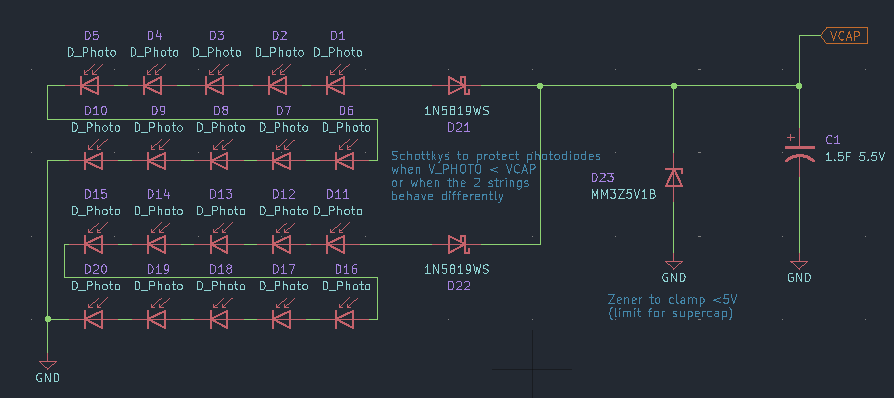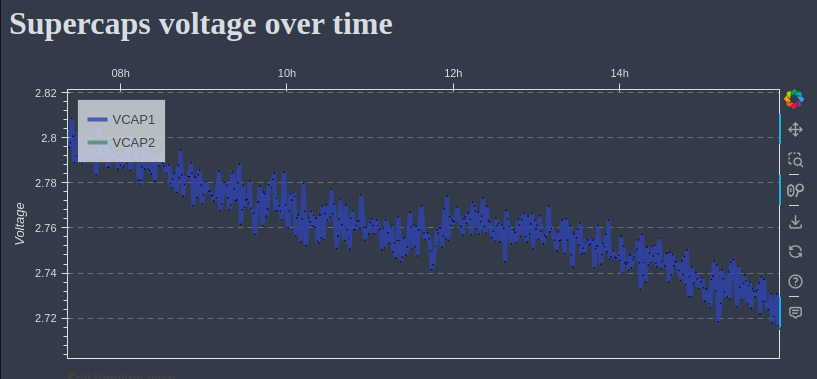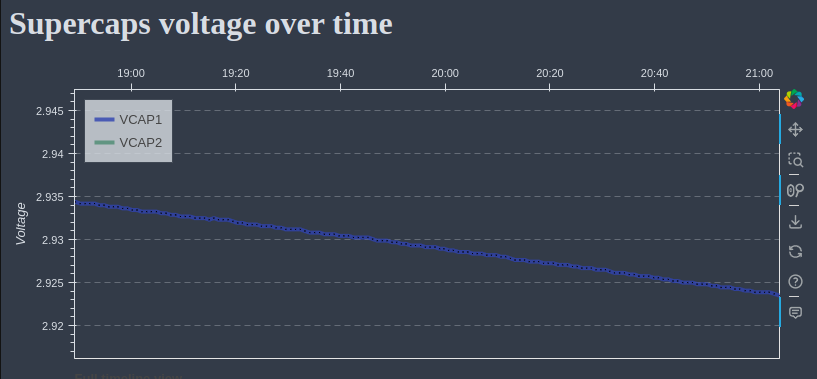-
Round lampions
09/06/2024 at 20:07 • 0 commentsI received panelised PCBAs the other day after making a few modifications:
- new 1.5F supercaps (the ones I was using before are discontinued)
- smaller attiny25 MCU
- 1.8V LDO in a bid to drastically reduce MCU current draw at higher voltages
I finally programmed them, and they work :)
![]()
-
Supercapacitor self discharge and leakage current
09/06/2024 at 20:03 • 0 commentsI suspected that the supercaps I am using were draining fast, and that connecting the photodiodes to them was actually draining the caps when they were not charging them.
![]()
The supercapacitors are charged using photodiodes in a 2s10p configuration, each string protected by a Schottky diode. See schematic.
![]()
I knew from extrapolating the datasheet that the Schottky diodes would not drop a lot of voltage at tiny currents (a few dozens uA max), and I confirmed this with measurements. But I was not clear whether when Vcap > Vphotodiodes, the reverse Schottky diodes would leak come current the other way, therefore discharging the supercaps, and undoing what the solar charge was doing!
The graph confirms this: regardless of the supercap used, when the photodiodes are connected, they deplete much faster then when the photodiodes are disconnecting (~200mV/day v. <100mV/day, see the blue and green lines). Yes, the discharge is not linear but empirically the difference is noticeable regardless. The graph also confirms that the slightly bigger caps are much better when it comes to self discharge! Compare the blue and orange lines: ~100mV/day v. ~40mV/day (that includes the Zener diode too).
-
Tracking supercaps voltage
06/28/2024 at 20:56 • 0 commentsI'm building a quick voltage monitoring system to keep track of the voltage in the supercaps over time.
I'll post more about it but in short here's the setup:
- Battery-powered ESP32 reading voltages from time to time
- Posting these values over Wifi to a flask server which adds this to a local database (a CSV file for now)
- Another flask page plots the value using bokeh
The most interesting thing I discovered is how crappy the ESP32 built-in ADCs are, just these the difference between the values coming from them and the ones coming from a ADS1115 module:
![]()
![]()
I know it's news to nobody but it cam as a shock nevertheless.
Now that I have new test boards with some issues with the photodiodes fixed (see here: https://x.com/AtelierLelu/status/1806791392288543119) I'll be able to do more tests.
I'm also revisiting the daytime detection mechanism using low power voltage supervisors.
 atelierlelu
atelierlelu



